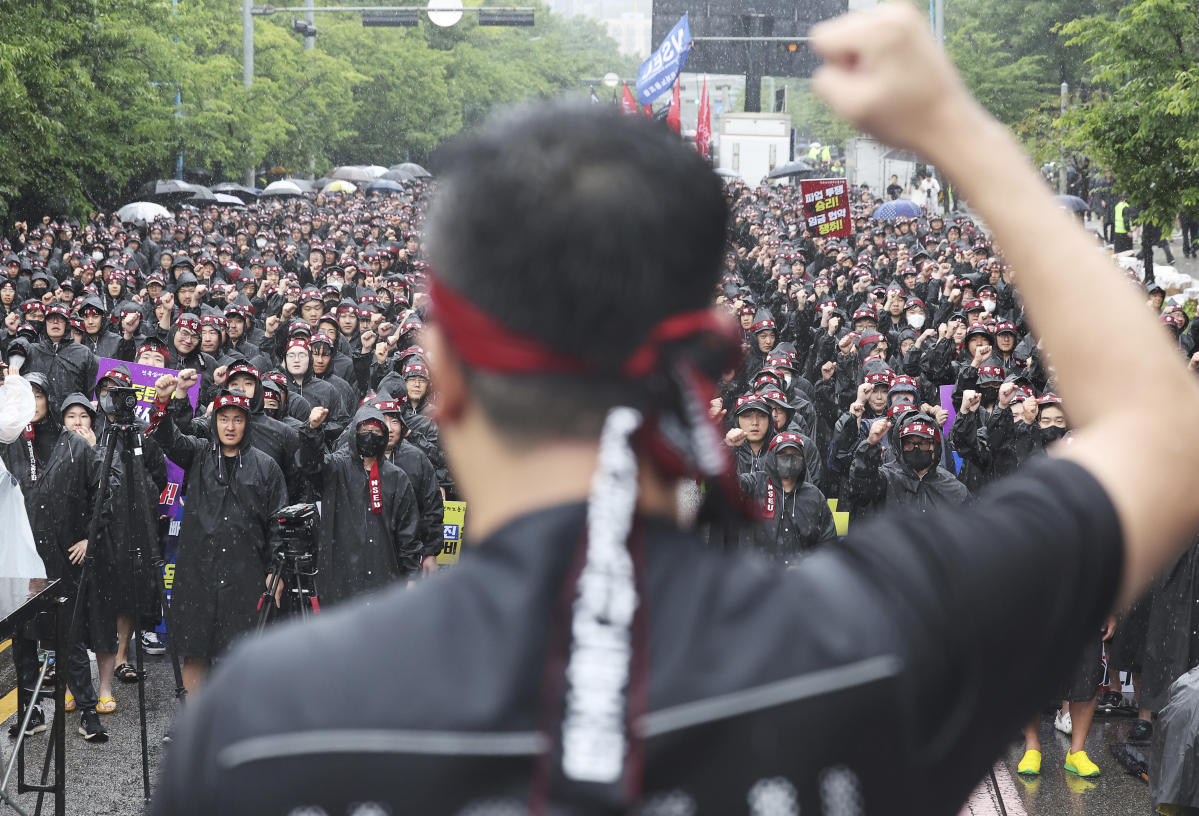Workers at Samsung Electronics announce “indefinite” strike

SEOUL, South Korea (AP) — Unionized workers at Samsung Electronics called an indefinite strike on Wednesday to pressure South Korea’s largest company to meet their demands for higher wages and other benefits.
Thousands of members of the National Samsung Electronics Union began a three-day strike on Monday. However, the union said on Wednesday that it had announced an indefinite strike and accused management of being unwilling to negotiate. Samsung Electronics said there had been no production disruptions.
“Samsung Electronics will ensure that there are no disruptions on the production lines,” Samsung said in a statement. “The company remains committed to negotiating with the union in good faith.”
However, in a statement posted on its website, the union said it had engaged in unspecified disruptions to the company’s production lines in an effort to ultimately force management to come to the negotiating table if the strikes continued.
“We are confident of our victory,” the union said in a statement.
The union’s statement did not specify how many of its members would join the extended strike. The union had previously said that 6,540 union members had announced their participation in the previous three-day strike.
This would be only a fraction of Samsung Electronics’ total workforce, which is estimated at around 267,860 employees worldwide. Around 120,000 of them work in South Korea.
Earlier this year, union members and management held talks on the union’s demands for higher wages and better working conditions, but failed to reach an agreement. In June, some union members collectively used their annual leave to stage a one-day strike, which observers said was the first labor strike at Samsung Electronics.
According to reports, around 30,000 Samsung employees are members of the National Samsung Electronics Union, the company’s largest union, but some also belong to other, smaller unions.
In 2020, Samsung CEO Lee Jae-yong, then the company’s vice chairman, said he would no longer suppress employees’ attempts to form unions, expressing regret over his alleged involvement in a massive corruption scandal in 2016 that led to the impeachment of the country’s president.
The company’s anti-union practices have been criticized by activists for decades, although industrial action is common in other companies and sectors of society in South Korea.
Thousands of South Korean medical interns and residents have been on strike since February to protest government plans to drastically increase admissions to medical schools.


/origin-imgresizer.eurosport.com/2024/06/29/3995252-81080748-2560-1440.jpg)
